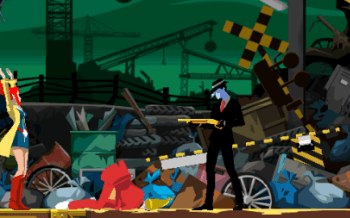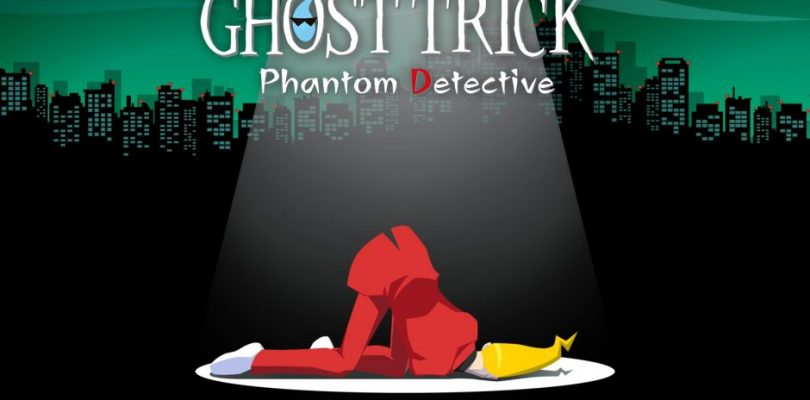Sissel’s night isn’t going very well. He wakes up in a garbage dump. He can’t remember anything, not even his own name. Oh, and he’s dead.
The one advantage he has in this scenario is his power to “trick” objects he possesses. Soon, he encounters another spirit, Ray, who happens to be possessing a lamp (a Ray of light in the darkness, if you will) who tells him the terrible truth: At the end of the night, Sissel will cease to exist.
Tasked with finding out how he died in just one night, Sissel sets off on a quest that will intersect a number of character’s fates, irrevocably changing their paths forever.

Ghost Trick: Phantom Detective was a 2011 Capcom game for the Nintendo DS and iOS. A cult classic, it never rose to mainstream appeal – yet it persists as one of the best games on the Nintendo DS to this day. A glowing example of narrative-based game design, Ghost Trick tells an amazing story while providing a really unique and enjoyable gameplay experience.
The game plays much like an interactive Rube-Goldberg machine, which tasks the player with manipulating the environment in such a way as to change fate. Often, the player will be sent back in time, 3 minutes before a character’s death, to intervene and change fate.

The beautiful thing about this game is how everything, even gameplay mechanics, come into play within the game’s story. Everything is explained, slowly, over the course of the night. And the ending is full of so many twists and turns, with such a beautiful climax, that it stands out as one of the highlights of gaming storytelling on a Nintendo console.
If you haven’t played Ghost Trick: Phantom Detective yet, you absolutely should. It’s a fantastic game that deserves every bit of praise that’s heaped upon it.

